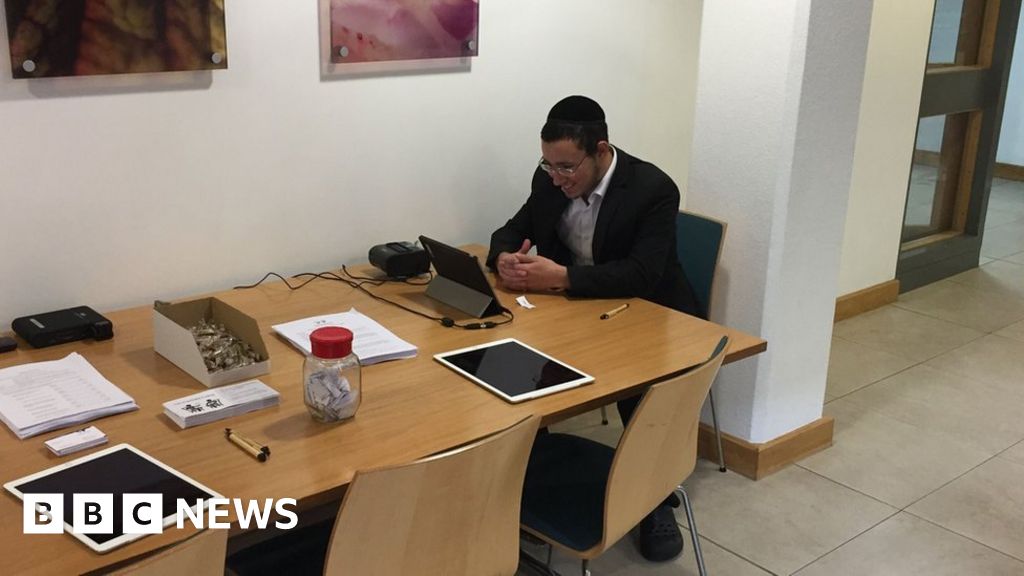E-voting By Touch-screen Trialled In Local Elections

 Image copyright
Feng Hao
Image copyright
Feng Hao
Voters in Gateshead are being invited to vote twice in the local elections - via the traditional ballot box and on a touch-screen computer.
Only their ballot paper vote will count, with the e-voting just a trial.
E-voting could eventually transform elections, doing away with the need for an election count.
Several countries have experimented with such systems but security fears have held deployment back.
Anyone wanting to take part has to record their vote via a touch-screen computer at the polling booth by entering a passcode issued to them, selecting a candidate and then receiving a paper receipt.
All encrypted votes are published on the election website, where anyone will be able to look at the tally for each candidate.
The system will flag up if any e-vote has been illegitimately modified.
Pixelated votes
What made it different from previous systems was that it could be verified "end to end", said the team at Warwick University who developed it, with funding from the European Research Council and Innovate UK.
"Imagine a picture of London skyline. The picture is formed of millions of pixels. Each voter holds the key to one pixel, which is their vote. Every pixel is encrypted so it does not reveal any private information about the individual vote," said Feng Hao, professor of security engineering at the university's department of computer science.
"However, when all pixels are combined together, a picture is revealed, showing the election tally. If an attacker attempts to tamper with pixel values, or modify the election result, it will be publicly detectable because the mathematical relations between pixels will fail to be verified."
E-voting trials have previously been conducted in local elections in England, between 2002 and 2008, but discontinued.
Similar systems have also been trialled in the US, India, Brazil, Estonia, Norway and Switzerland.
E-voting can mean a variety of things, from voting via a device rather than a paper ballot to remote voting via smartphone.
'Faster and safer'
The system on trial in Gateshead has been six years in the making.
"Hopefully we will provide useful case studies to the voting law here in the UK, which is basically unchanged from over 100 years ago and has not accounted the many developments of modern digital technologies," said Prof Hao.
Prof Alan Woodward, from Surrey University's computer science department, said that the trick to making e-voting successful was "verifiability".
"Electronic voting has to come," he said.
"Not only does it make the process easier, thereby encouraging more people to vote, but it offers something that paper voting can't: verification that your vote was counted correctly.
"It also makes the whole process of counting potentially faster, as well as safer."
"Trials such as this, exercising e-voting systems in real election situations, are essential to look for the unexpected security issues.
"It's good to see a local authority willing to use the current elections as just such a trial environment, albeit that the actual votes will still be on paper."
From Chip War To Cloud War: The Next Frontier In Global Tech Competition
The global chip war, characterized by intense competition among nations and corporations for supremacy in semiconductor ... Read more
The High Stakes Of Tech Regulation: Security Risks And Market Dynamics
The influence of tech giants in the global economy continues to grow, raising crucial questions about how to balance sec... Read more
The Tyranny Of Instagram Interiors: Why It's Time To Break Free From Algorithm-Driven Aesthetics
Instagram has become a dominant force in shaping interior design trends, offering a seemingly endless stream of inspirat... Read more
The Data Crunch In AI: Strategies For Sustainability
Exploring solutions to the imminent exhaustion of internet data for AI training.As the artificial intelligence (AI) indu... Read more
Google Abandons Four-Year Effort To Remove Cookies From Chrome Browser
After four years of dedicated effort, Google has decided to abandon its plan to remove third-party cookies from its Chro... Read more
LinkedIn Embraces AI And Gamification To Drive User Engagement And Revenue
In an effort to tackle slowing revenue growth and enhance user engagement, LinkedIn is turning to artificial intelligenc... Read more

